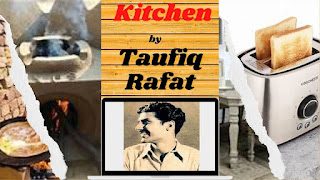Themes of Things Fall Apart
Introduction
"Things Fall Apart" by Chinua Achebe is a powerful and thought-provoking novel that delves into the complexities of African society, colonialism, cultural clashes, and the human condition.
1. Colonialism and Cultural Clash
- One of the central themes of the novel is the impact of colonialism on traditional Igbo society. The arrival of European colonizers disrupts the existing social and cultural order, leading to conflict and upheaval.
- The clash between the Igbo way of life and Western values is a recurring motif, highlighting the tension between tradition and change.
2. Tradition Vs. Modernity
- Achebe explores the tension between traditional African customs and the encroachment of modernity. Characters like Okonkwo represent the desire to preserve cultural traditions, while others, like Nwoye, seek a more open-minded approach to change.
- The novel raises questions about the cost of progress and the loss of cultural identity in the face of modernization.
3. Gender Roles and Patriarchy
- "Things Fall Apart" portrays the rigid gender roles and patriarchal society of the Igbo people. Women are often marginalized and excluded from important decision-making processes.
- The character of Okonkwo embodies the traditional masculine ideal, emphasizing the societal pressure to conform to rigid gender roles.
4. Fate and Destiny
- The concept of fate and destiny is woven throughout the narrative. The Oracle of the Hills and Caves plays a significant role in shaping characters' beliefs and actions.
- The novel explores the idea that individuals can have some control over their destinies but are also subject to larger forces beyond their control.
5. The Power of Fear
- Fear is an important theme in the novel. Characters like Okonkwo are driven by the fear of appearing weak or effeminate.
- Fear often leads to tragic consequences, as characters make decisions based on their desire to avoid shame or vulnerability.
6. Change and Adaptation
- The novel illustrates the inevitability of change and adaptation in human societies. The Igbo people must adapt to new circumstances brought about by colonialism.
- It raises questions about the resilience of cultures and societies in the face of external pressures.
7. Family and Community
- The importance of family and community is a recurring theme. The Igbo people have a strong sense of kinship and communal bonds.
- Characters' actions often reflect their commitment to preserving the unity and integrity of their families and clans.
8. Tragedy and Hubris
- The novel follows a tragic arc, with the rise and fall of the protagonist, Okonkwo. His excessive pride, or hubris, ultimately leads to his downfall.
- Achebe's exploration of tragedy underscores the consequences of unchecked ambition and inflexibility.
Conclusion
"Things Fall Apart" is a rich and multi-layered novel that explores a wide range of themes, providing readers with profound insights into the complexities of society, culture, and human nature. These themes resonate not only in the context of the novel but also in the broader exploration of African identity, colonialism, and the enduring relevance of these issues in our world today. By delving into these themes, readers can gain a deeper understanding of the novel's enduring impact and its contributions to literature and social commentary.


Comments
Post a Comment
If you guys have any doubts or queries please let me know.